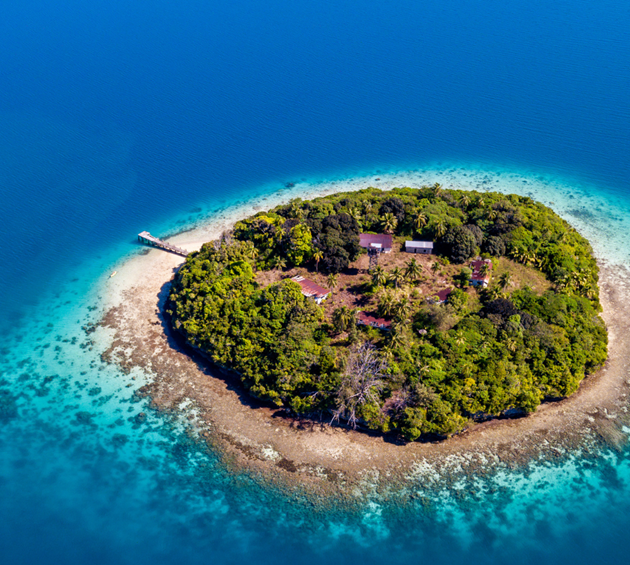2024 will see climate action on an international scale.
Just as litigation is increasingly being used worldwide as a tool to address the climate crisis, a growing number of climate-related legal initiatives are ending up in front of international courts.
Many States at the forefront of the climate crisis have been calling for more urgent climate action - faced with increased climate harms and, at times, frustrated with slow progress at international climate conferences such as COP. They are now taking their climate concerns to the highest courts, seeking answers, decisions and opinions that will help them galvanise world leaders into taking powerful climate action.
We’re following three such international actions, all set to play out during the course of 2024. We’ll be bringing you the updates as they happen.
What are International Courts?
There are various different international courts and tribunals. The main one is the International Court of Justice (ICJ), which is the only international court that adjudicates general disputes between nations and gives advisory opinions on international legal issues. It’s one of the six organs of the UN, located in The Hague, Netherlands.
But there are other international courts and tribunals, including the International Tribunal for the Law of the Sea (ITLOS), which was established by the UN Convention of the Law of the Sea (convention drafted within the UN system), and the Inter-American Court of Human Rights (IAtCHR), the regional court overseeing the American Convention on Human Rights and completely independent of the UN.
What is an advisory opinion and what can it do?
An advisory opinion is legal advice, pronouncement, or clarification on points of international law.
An advisory opinion determines how international law is to be understood and interpreted in a given context, and may set a standard for subsequent activity for international laws to be built upon – seeking an advisory opinion can be the start of changing international legal systems for good.

The three big international court actions to watch:

Vanuatu ICJ advisory opinion
The Republic of Vanuatu, following an initiative by the Pacific Islands Students Fighting Climate Change, is leading the efforts that resulted in the UN General Assembly asking the UN’s International Court of Justice for an advisory opinion on what the obligations of countries across the world are when it comes to climate change.

Small Island States ITLOS advisory opinion
A commission of small island states from across the world (COSIS) lodged a legal request to the tribunal in Hamburg for an advisory opinion that sought to define the obligations that countries have to protect the marine environment from the negative effects of anthropogenic GHG emissions.

Chile and Colombia IACHR advisory opinion
Chile and Colombia have requested an advisory opinion from the Inter-American Court of Human Rights. They are seeking clarification on what the obligations are for States to respond to the climate emergency within the frame of the regional human rights law.
Updates on international climate court action
Monday 8th July 2024: ClientEarth, CIEL, Pacific Islands Students Fighting Climate Change and World's Youth for Climate Justice published a joint legal memorandum on the relevance of the ITLOS advisory opinion for the advisory opinion proceedings before the ICJ. The full memo can be found here.
Tuesday 21st May 2024: In Hamburg, Germany, the International Tribunal for the Law of the Sea gave its advisory opinion following a request from a group of small islands states for clarity on state obligations to reduce GHG emissions to protect the ocean. It said that:
- States have an obligation to reduce their emissions to protect our ocean.
- Climate action may need to go beyond the international climate treaty – the Paris Agreement – for countries to meet their legal obligations on marine protection.
- States with the greatest historic responsibility for the climate crisis must step up and do more to address pollution from greenhouse gas emissions than states with smaller footprints.
Tuesday 23-27th April 2024: Barbados hosted the first round of oral hearings in the advisory opinion brought by Chile and Colombia. Submissions and testimonies were heard by civil society and supporters, including ClientEarth lawyers Sophie Marjanac and Lea Main-Klingst.
Find updates from Sophie and Lea here.
Tuesday 9th April 2024: The European Court of Human Rights ruled on a case brought by KlimaSeniorinnen Schweiz (Swiss Senior Women) against the Swiss government, arguing that the government was breaching its human rights obligations through climate inaction, as current climate targets and measures are not sufficient to limit global warming to a safe level.
The Court ruled in favour of the Swiss Senior Women, in a huge victory for climate action, and for those seeking to use the law to hold their government accountable for not doing enough to tackle the climate crisis. The result from one of the world’s highest human rights courts sends a clear message: governments must take real action on emissions to safeguard the human rights of citizens.
As this Court ruling is binding, signatory states now have a clear legal duty to ensure their climate action is sufficient to protect human rights, and judges across Europe will have to apply these new principles to the growing number of climate cases before them.
We were happy to have provided our legal expertise in this case, and that the approach we advocated for was adopted by the Court today. However, none of this would have been possible without the dedication of these inspirational Swiss citizens.



